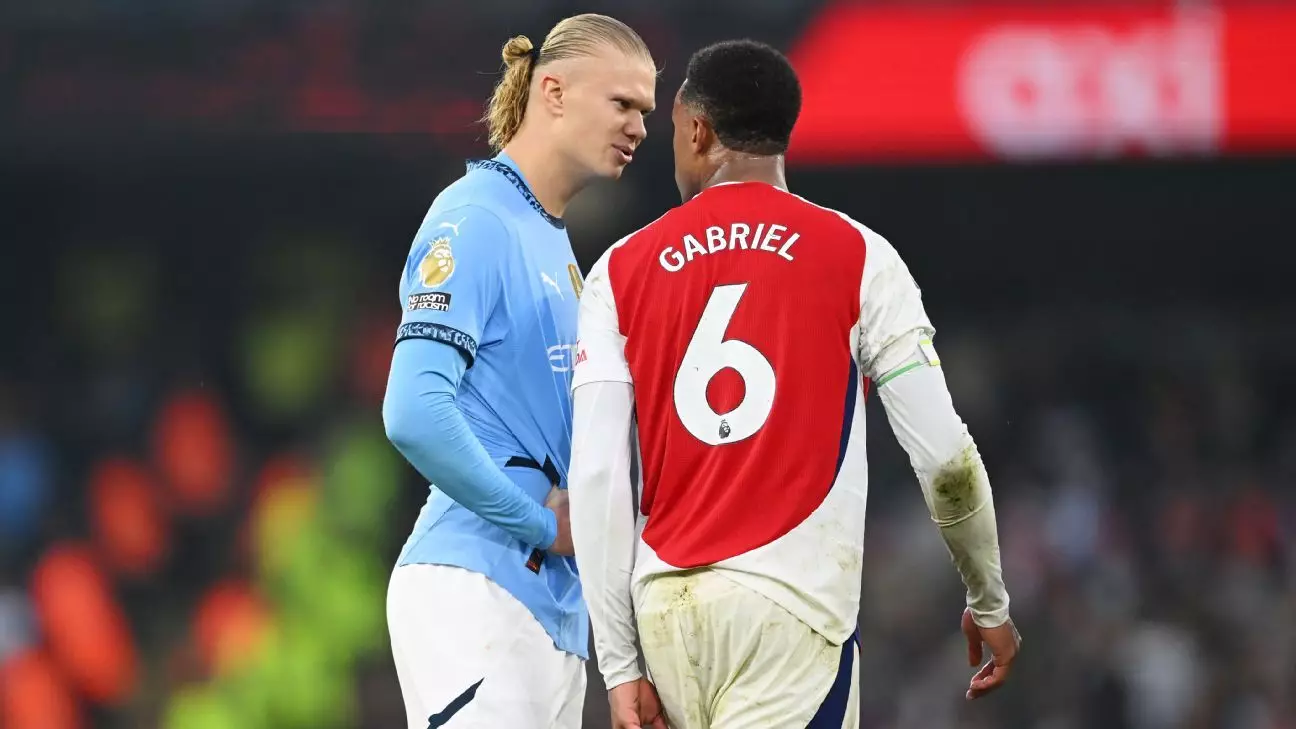In a match characterized by intense emotions, Erling Haaland’s refusal to face repercussions for throwing the ball at Arsenal’s Gabriel Magalhães has sparked considerable debate. The incident unfolded during the dramatic conclusion of Manchester City’s 2-2 draw against Arsenal at the Etihad Stadium. Footage captured Haaland throwing the ball, seemingly out of frustration, after John Stones’ late equalizer. The key officiating figures, including referee Michael Oliver and VAR John Brooks, did not classify this act as violent conduct—an oversight that has left fans and analysts questioning the standards of officiating in high-stakes matches.
While the VAR system is designed to enhance the game’s integrity, instances like this demonstrate its limitations, particularly in assessing player conduct during moments of duress. Brooks’ judgment to deem the incident as non-violent suggests a disconnect between the technology’s intent and its application on the field. The incident not only reflects on Haaland’s character but also raises fundamental questions about how player interactions are monitored. The Football Association (FA) stated that they do not plan to investigate further, emphasizing that the situation was resolved during the match. However, this passivity could invite further unsportsmanlike behavior in future encounters.
Compounding the tensions was Haaland’s altercation with Arsenal manager Mikel Arteta and forward Gabriel Jesus after the final whistle. The emotional stakes were high for both teams, particularly for City, which harbored grievances regarding Arsenal’s perceived time-wasting tactics following Leandro Trossard’s red card. City’s defender Manuel Akanji articulated the frustration by accusing Arsenal players of feigning injuries to slow the game, which further deepened the rivalry narrative. In a game where every tactical decision can tilt the balance, such disputes often overshadow the gameplay itself.
Implications for Upcoming Matches
Looking ahead, Manchester City faces a challenging schedule with a quick turnaround to their Carabao Cup clash against Watford. The underlying tensions from the Arsenal match could affect players’ performances, especially if emotions from the previous encounter linger. Pep Guardiola’s selection dilemmas are compounded by injuries, most notably to Kevin De Bruyne. With the pressure mounting to deliver results, Guardiola’s tactical decisions will be scrutinized even more than usual.
The fallout from the match against Arsenal has highlighted not only individual confrontations but also pointed to broader issues within football, such as officiating consistency and player conduct. Haaland’s provocative actions and the subsequent reactions from players and management illustrate the heat of competition in football. As City prepares for their next fixtures, the implications of their emotional engagement during the Arsenal match could resonate, potentially influencing their approach both on and off the field. The episode serves as a reminder that beyond the goals and tactics, football is as much about managing emotions and relationships as it is about the sport itself.


Leave a Reply